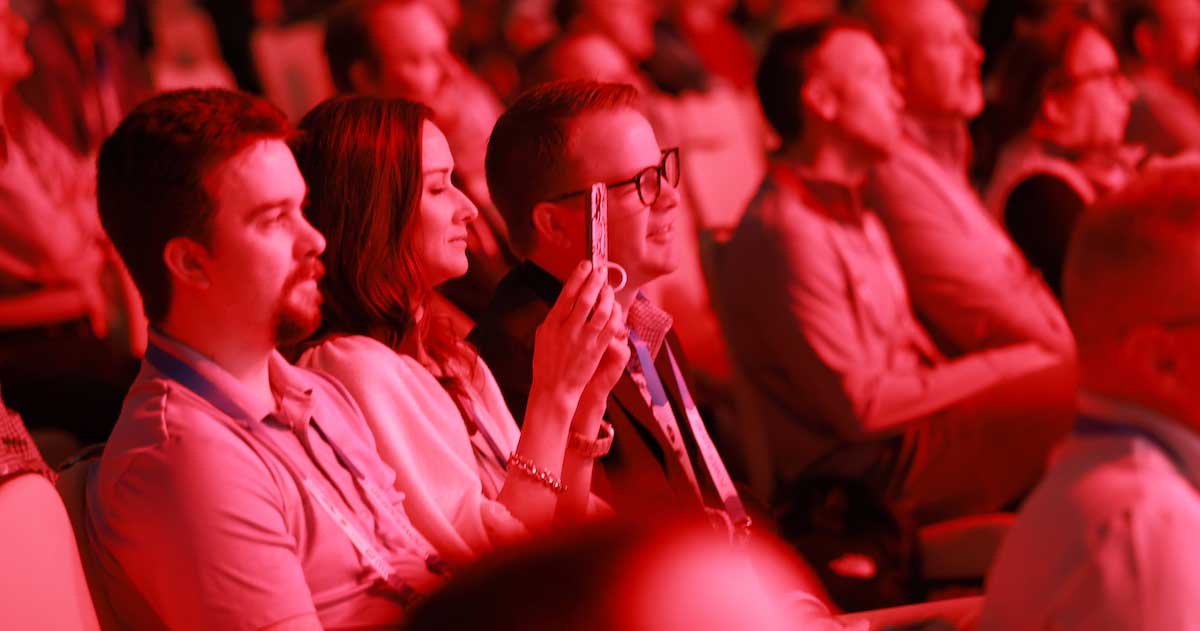Amanda Armstrong says that as the meeting industry prepares to celebrate Global Meetings Industry Day (GMID) on March 30, it’s important to think bigger than our economic value.
Armstrong, one of MPI’s 50 most influential meeting professionals and senior vice president of brand and community engagement for Encore—one of the sponsors of MPI’s 12-hour GMID broadcast—recently joined us to discuss the intrinsic value of meetings, inclusion and belonging in the meeting industry and the importance of advocacy.

The economic value of meetings is a critical part of GMID messaging, but you’re also passionate about the intrinsic value of meetings. Tell us a bit about what that means and why it’s important.
I think in so many cases meeting professionals find themselves defending their budgets in times of economic uncertainty, but this year there’s a big opportunity on the table to capitalize on the industry’s momentum after the pandemic. There’s a big conversation in the corporate world about how to get employees back into the office and on the road to see their customers. Why? We understand the value of in-person connection. The vacuum-effect of the pandemic taught senior executives The Great Lesson: there’s nothing more powerful than together in person. In fact, 77 percent of executives consider business travel essential to their company’s financial performance.
As meeting professionals, if we can continue to align our events’ outcomes with organizational objectives like employee and client retention or engagement, it changes the conversation from budgets to the organizational value of meetings. It’s time to change the conversation.
How is the meeting industry falling a bit short when it comes to inclusion and belonging, and how can that be rectified?
DEI is a hot topic right now and our customers are telling us in our research that it’s something they’re thinking about. At Encore we have added the B to DEI for “belonging,” as events play a critical role in connection, which puts the meeting professional in the role of being a community-builder. While there is good conversation about better representation in our industry, we’re also interested in designing events for belonging and inclusion. How do we design a meeting environment where attendees can be their authentic selves? Are we successfully addressing accessibility? How do we communicate pre- and post- event to strengthen relationships and create a sense of community? When attendees feel a sense of belonging at an event, we’ll see greater engagement, more collaboration and better business outcomes.

Tell us about your belonging-focused session at MPI’s World Education Congress (WEC) in the Riviera Maya
At WEC in June, we’ll be leading an educational session called “Putting the B in DEIB: Designing for Belonging,” which combines the expertise of our DEI specialist and our event strategy team to talk about how the meetings industry can design events that motivate attendees to show up and get involved. We think that the combination of their unique skill sets and expertise will spark some great conversation and ideation around creating events with more authenticity and a greater sense of connection.
Why is meeting advocacy through events such as GMID important to you?
I believe that events transform and inspire. Coming together on GMID makes me proud to be a part of an industry that brings individuals and communities together to create positive change.
Global Meetings Industry Day provides us all the opportunity to tell our story and why meeting matter. Shared experiences create connections and on a personal level, they have been some of the most transformative moments of my career. I have forged lifelong bonds with my colleagues as we connected on issues, projects and initiatives that we moved forward through partnerships. Our industry does this well and it’s something to celebrate.
Beyond GMID, how can we all be better about telling our story?
Storytelling is what connects us on a human level and strengthens communities. That takes courage, a little vulnerability and curiosity. Telling our story is one part of the equation but listening and understanding others’ stories might be even more important. This is just as much about handing the microphone to someone else who doesn’t come from the same background or experience as you do. Setting an intention is key and by seeking to understand others we will build connections and strengthen communities.



